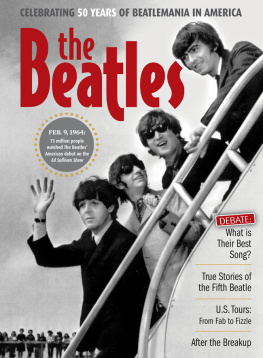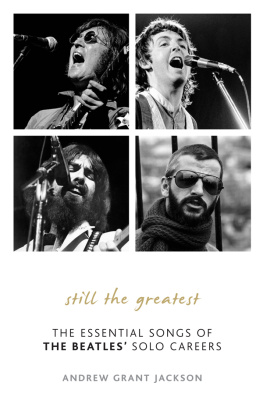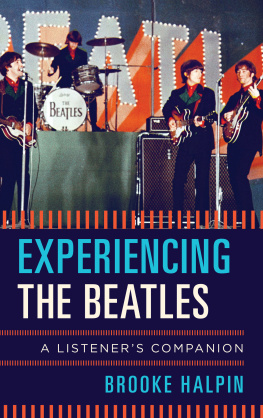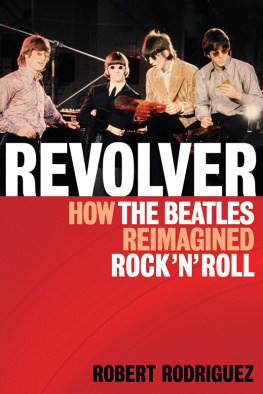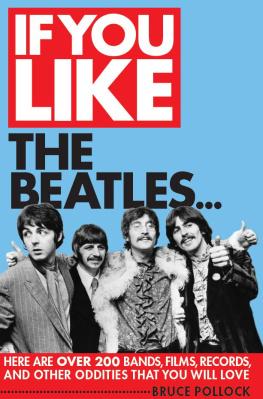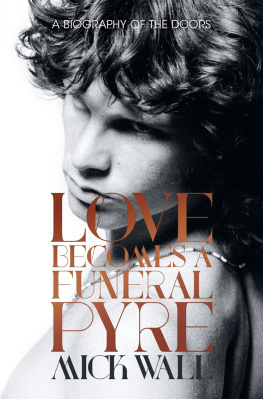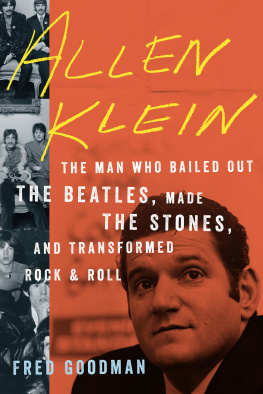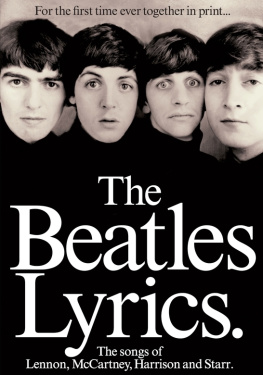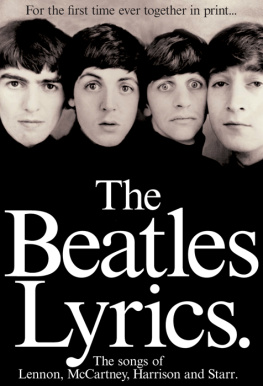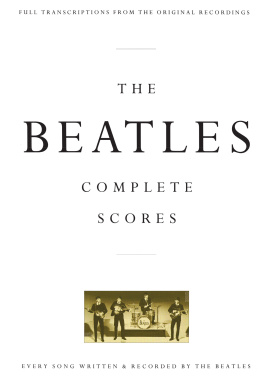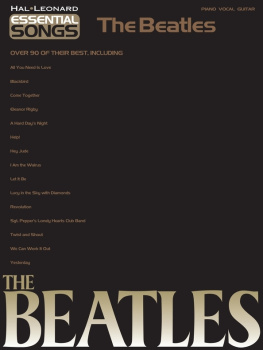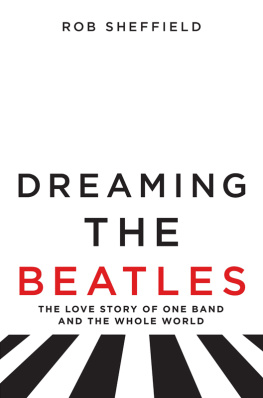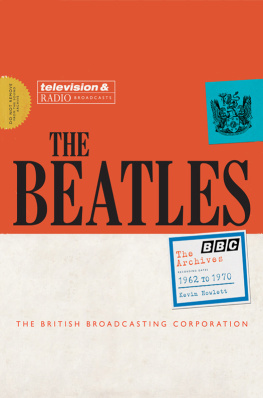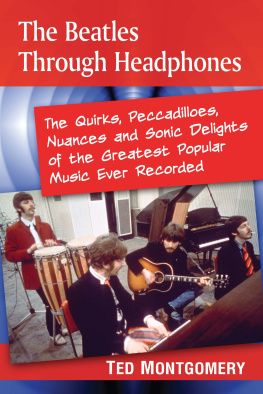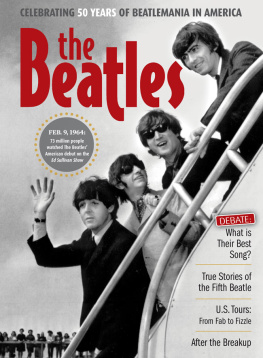The Toppermost of the Poppermost
The year 1963 saw the Beatles take over the U.K. and lay the groundwork for Beatlemania in America.
by Ian Inglis
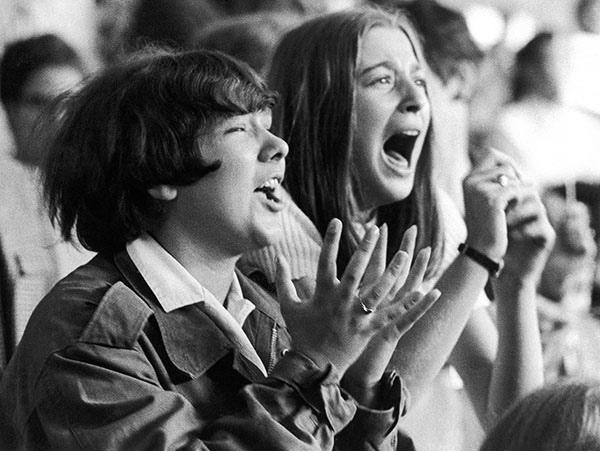
The only topic of conversation in Britain at the start of 1963 was the weather. Snow had started to fall in the last week of December and continued to do so for much of the next three months. January was the coldest month since 1814. Schools closed, lakes and rivers froze, transport networks came to a halt.
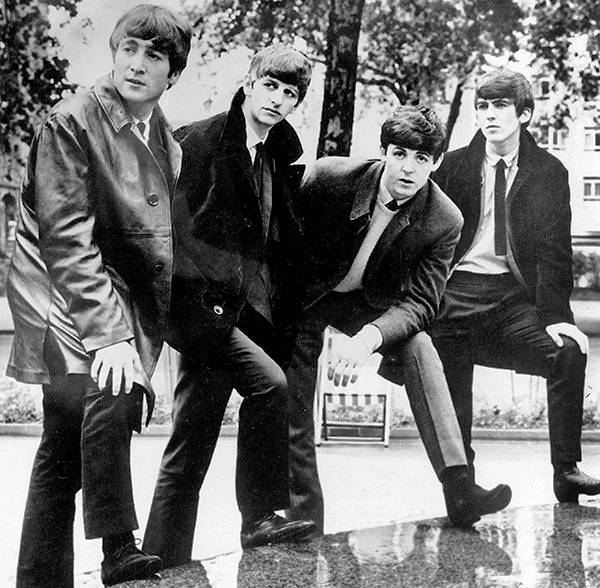
When the Beatles were depressed, thinking that the group was going nowhere and this is a [bad] deal and were in a [bad] dressing room, Id say, Where are we going fellows? and theyd go, To the top, Johnny. And Id say, Wheres that fellows? and theyd say, To the toppermost of the poppermost. And I say, right, and wed all sort of cheer up.
John Lennon The dialogue is a play on the 1953 Marlon Brando movie The Wild One.
1963: Another Year
When John Lennon, Paul McCartney, George Harrison and Ringo Starr flew into London on New Years Day 1963 after completing a third and final season at Manfred Weissleders Star-Club in Hamburg, they were scheduled to begin a five-date tour of small venues across the Highlands of Scotland that had been arranged two months earlier. Many roads were impassable. The first show (in Keith) had to be canceled, the remaining four suffered from poor attendance, and promoter Albert Bonici lost money.
It was an inauspicious start for the Beatles, who were hoping that the recent chart entry of their first single, Love Me Do, and the imminent release of the follow-up, Please Please Me, might bring them a measure of recognition beyond the local followings they had built over the previous few years in Liverpool and Hamburg.
The groups optimism, manager Brian Epsteins determination and producer George Martins enthusiastic appraisal of the groups commercial potential were not widely shared.
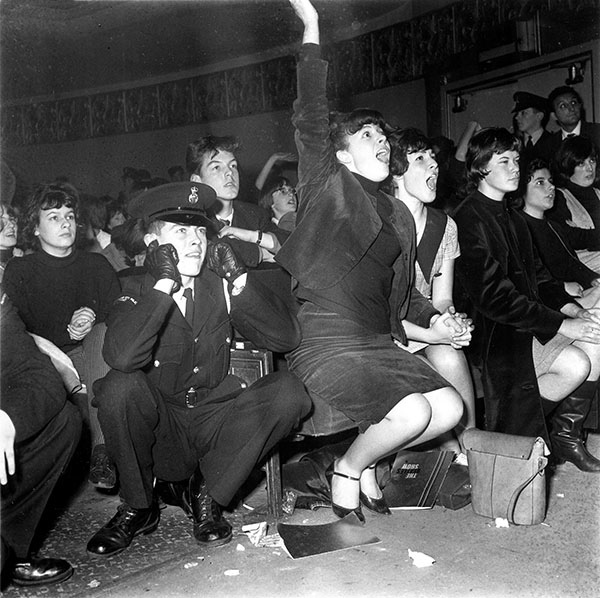
Screaming Beatles fans in Manchester, England force a young police cadet to plug his ears.
The control of popular music in Britain remained, as it had throughout the 1950s, in the hands of a small number of agents, promoters and record labels (Decca, EMI, Philips and Pye), all of whom maintained a strong preference for -London-based performers, an acceptance that musical trends in the U.K. were inevitably dictated by U.S. styles, a preference for the solo singer (or lead singer and backing group), a reluctance to depart from a musical policy characterized by familiarity and predictability, and an unquestioned assumption that the performer and the songwriter should be two separate people. The cozy lack of ambition that these beliefs created was seen in the persistent popularity of British pop stars such as Cliff Richard, Adam Faith, The Shadows, Craig Douglas, Billy Fury and Helen Shapiro, who happily met all the criteria demanded of them. (The Beatles toured with Shapiro, a prim teenager with a beehive hairdo, in February and March of 1963 as one of her opening acts.)
The notion that a group of four youngsters from deprived and distant Liverpool, that possessed no identifiable lead singer, that wrote and recorded its own songs, and that were managed by a local businessman with no experience in the entertainment industry might enjoy any meaningful success seemed absurd. The Beatles had been rejected out-of-hand by record companies Philips and Pye. Deccas blunt refusal to sign the group after its studio audition in January 1962, with the advice that guitar groups were on the way out, typified the condescending and complacent attitudes faced by the band. Everywhere he turned, Epstein faced the same message: The boys wont go, Mr. Epstein. We know these things. You have a good business in Liverpool. Stick to that.
Although the group had built up pockets of popularity, each success had come through slow and steady effort. The groups history dated back to 1956, when 16-year-old John Lennon, inspired by the sounds of Elvis Presley and Lonnie Donegan, persuaded a group of schoolfriends to join him in the formation of The Quarrymen skiffle group. By 1963, of the original line-up, only Lennon remained. As other members drifted away, pursued alternative ambitions or were fired, the arrivals of McCartney (1957), Harrison (1958) and Starr (1962) completed the group, which took the Beatles name in 1960.
At the start of 1963, it looked like John, Paul, George and Ringo would spend another year developing their craft and hoping for a big break.
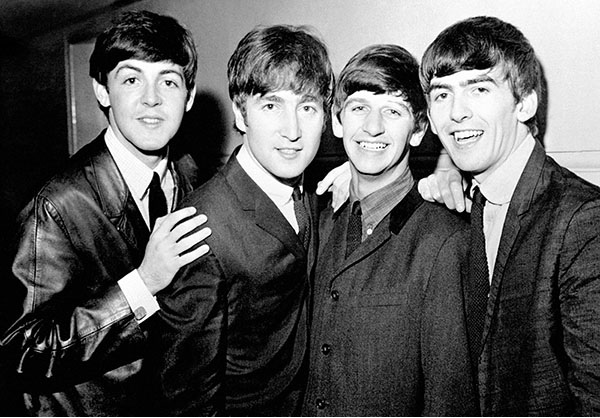
Paul McCartney joined up with John Lennon in 1957, followed by George Harrison a year later and Ringo Starr in 1962.
Beatlemania in the U.K.
By the end of 1963, the Beatles were a phenomenon. They had accumulated four No. 1 singles (Please Please Me, From Me To You, She Loves You and I Want To Hold Your Hand) and two No. 1 albums ( Please Please Me and With the Beatles ). They had completed four nationwide tours. They had hosted their own 15-part weekly BBC radio series ( Pop Goes the Beatles ), topped the bill on ITVs flagship entertainment program Sunday Night at the London Palladium and appeared before the royal family in the annual Royal Variety Performance. They had sanctioned the creation of a nationwide fan club, approved the publication of an associated monthly magazine, The Beatles Book , whose circulation quickly reached 300,000, and established their own music publishing company. They had written chart hits for the Rolling Stones, Cilla Black, The Fourmost and Billy J. Kramer. To top it off, they had negotiated a three-picture film contract with United Artists. It was, by any standards, an astonishing and dramatic story.
Across the U.K., the unprecedented scenes of fan hysteria that surrounded the Beatles dubbed Beatlemania by the press quickly became the years major news story, surpassing coverage of the Profumo scandal, in which a government minister was forced to resign after lying to Parliament about his relationship with a prostitute, and the Great Train Robbery, in which the equivalent of $73 million was stolen from the overnight mail train from Glasgow to London.
Authorship of the term Beatlemania was variously claimed by the Daily Mail , the Daily Mirror and Melody Maker , all of whom pinpointed its first usage to October 1963, after the groups televised appearance on Sunday Night at the London Palladium .
But the phenomenon itself began to take shape long before that. On the Beatles second U.K. tour of the year, when they were ostensibly supporting American pop stars Tommy Roe and Chris Montez, the volume of screams during their performance and the swarm of fans at the end of every show were becoming increasingly apparent.
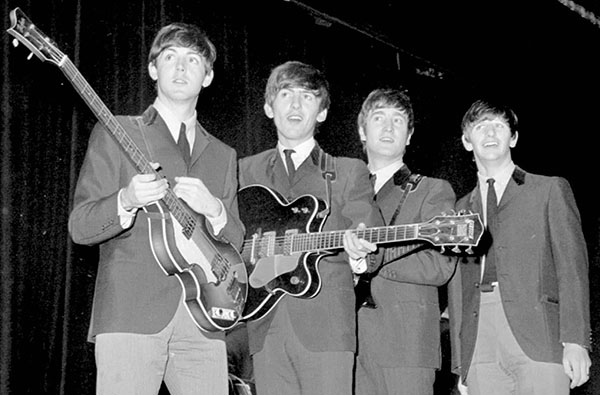
The Beatles rehearse for their appearance on the 1963 Royal Variety Performance in London.
A Recipe for Mania
What could account for the Beatles impact in a country where previous British performers had, at best, short-lived success? A managerial strategy that combined confidence and caution, a substantial promotional budget, the presence of two (later three) outstanding songwriters, and, of course, the music itself simple, joyous, unadorned and uncomplicated, containing influences drawn from rock n roll, pop, country and rhythm and blues traditions were all factors that set up the Beatles for a magical run, but other elements added to the explosion that was Beatlemania.
Next page
